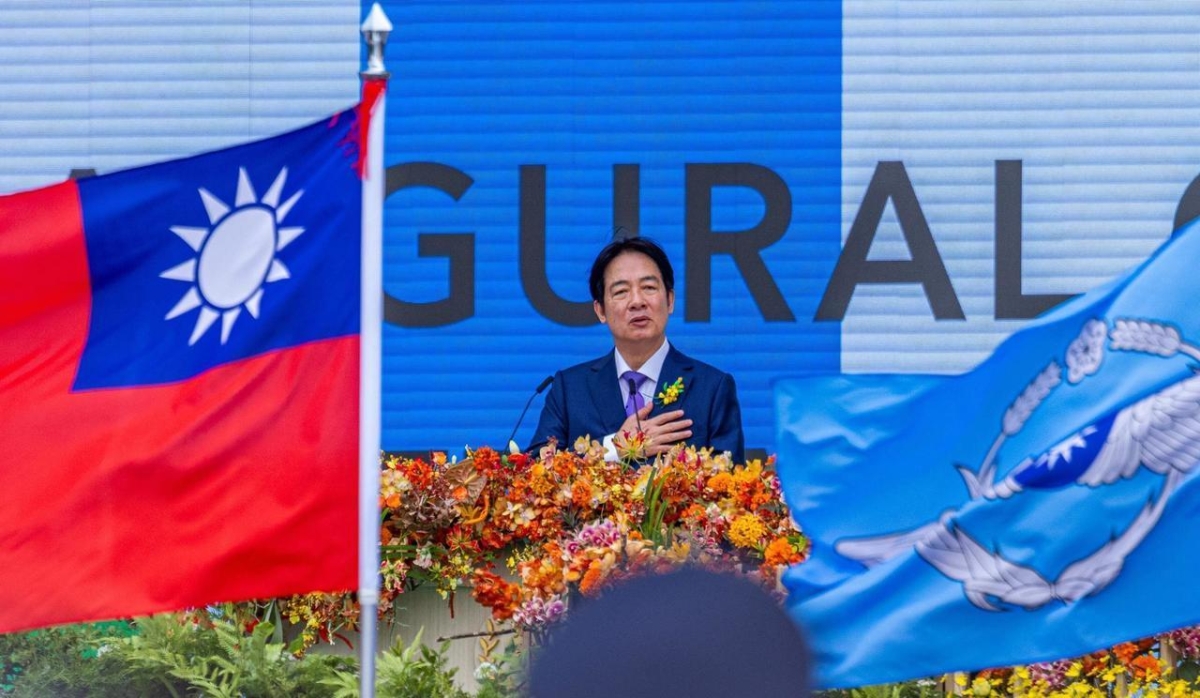New Paper | Lai Ching-te’s Inauguration Speech: Reactions from China, Civil Unrest in Taiwan

June 26, 2024 — The Asia Society Policy Institute’s Center for China Analysis (CCA) has published a paper entitled “Lai Ching-te’s Inauguration Speech: Reactions from China, Civil Unrest in Taiwan.” In the paper, Simona A. Grano, Senior Fellow on Taiwan, explains that cross–Taiwan Strait relations are at an “all-time low,” unpacks what a divided Legislative Yuan might mean for President Lai Ching-te’s domestic agenda, and analyzes how the U.S. presidential election in November might shift U.S. policy toward Taiwan.
According to Grano, Lai’s inaugural speech was “much less restrained” than that of his predecessor, Tsai Ing-Wen, leaving no doubt that Lai considers Taiwan a “sovereign nation.” “Lai placed a greater emphasis on the differences between Taiwan and China, starting with political ones: he repeated the word ‘democracy’ (minzhu, 民主) 31 times and used the word ‘sovereign’ (guojia zhuquan, 國家主權) in regards to the Republic of China,” writes Grano. “Lai’s first reference to China framed its aggressive actions toward Taiwan as a threat to the world: ‘the greatest strategic challenges to global peace and stability.’”
China’s military exercises in response to Lai’s speech are part of what Grano calls a “renewed effort to further isolate Taiwan in a less obvious manner.” Gray-zone activities — like the China Coast Guard patrolling around ROC islands that are close to China — “gradually blur accepted conventions by unliterally and progressively changing the status quo to a new normal, where rights and jurisdictions that were previously recognized and granted to Taiwan are no longer presupposed,” says Grano.
In his inauguration speech, Lai also referenced domestic issues and the internal division between Lai’s Democratic Progressive Party (DPP), as well as dissension from the Kuomintang (KMT) and the Taiwan People’s Party (TPP), which together hold the majority in the Legislative Yuan. The May 28 passing of a bill driven through by the KMT and TPP was met with protests in the streets after the DPP declared it unconstitutional. “This episode indicates that Lai could face a difficult first term on the domestic front due to the divided legislature, where the two opposition parties, if and when they decide to join forces, hold the majority of the votes,” writes Grano.
While there are differences of opinion around what a Biden or Trump presidency would mean for Taiwan, Grano says that Beijing hopes a Trump-led America will become more isolationist and inward-looking. Regardless of the outcome, Beijing “will adapt its strategies according to how the United States modifies its own Taiwan policy following the U.S. presidential election in November.”
Read the full paper here.
Members of the media interested in interviewing Simona Grano should email [email protected].